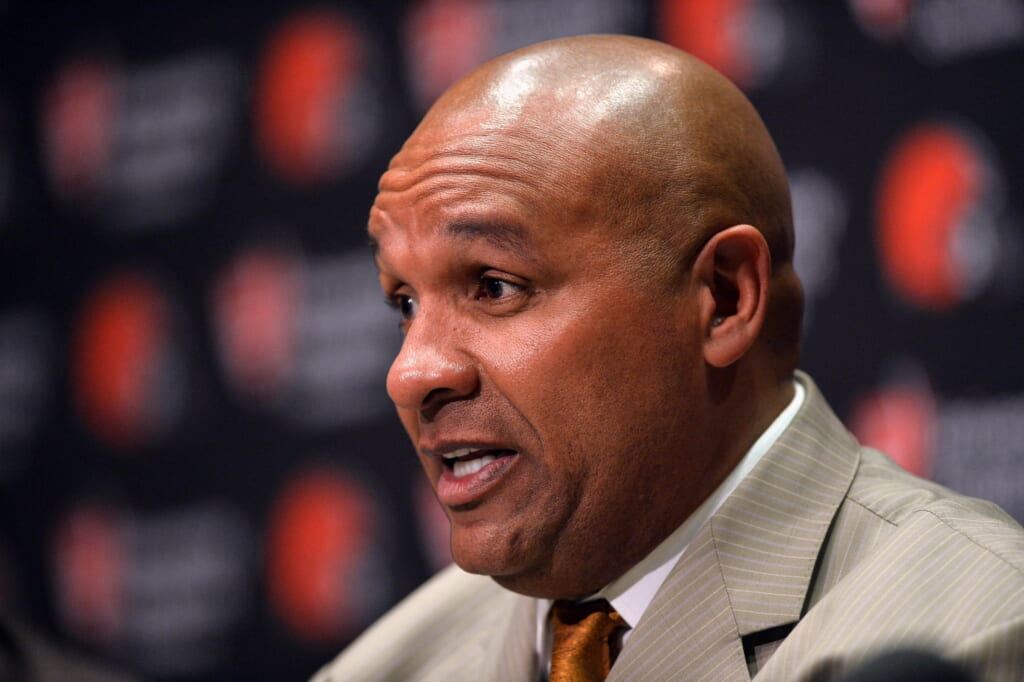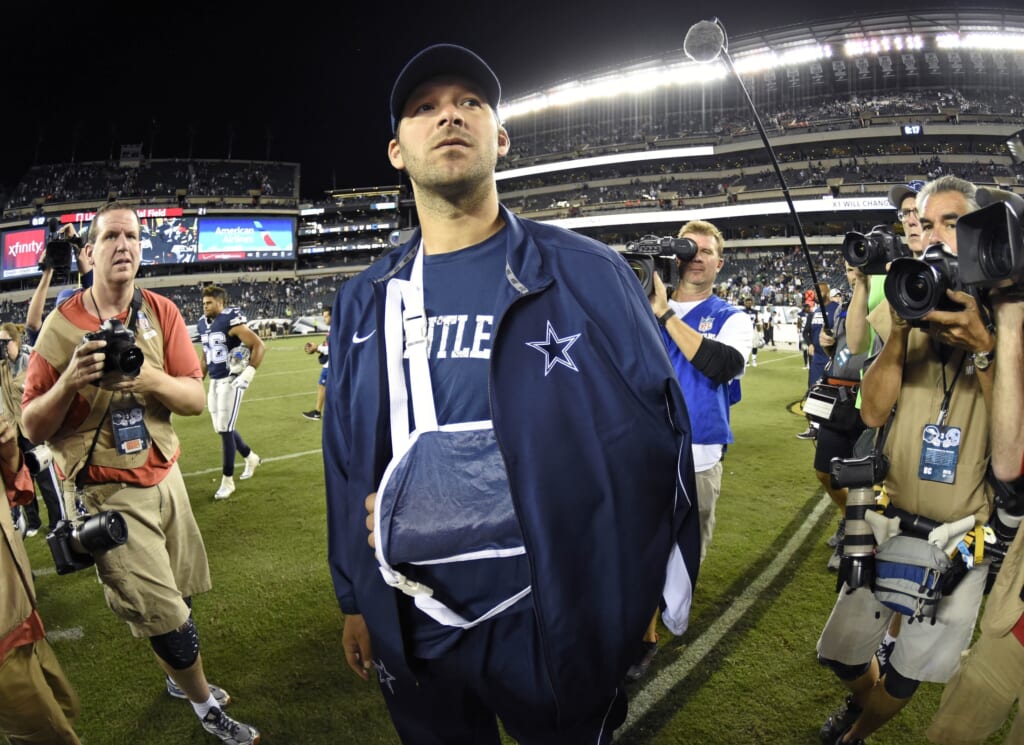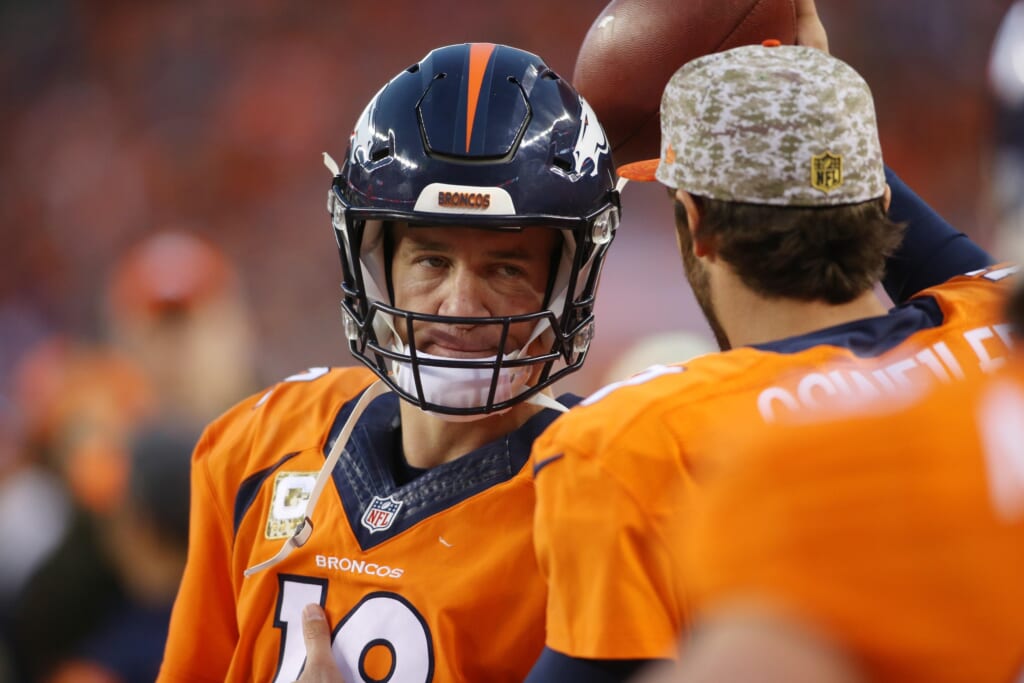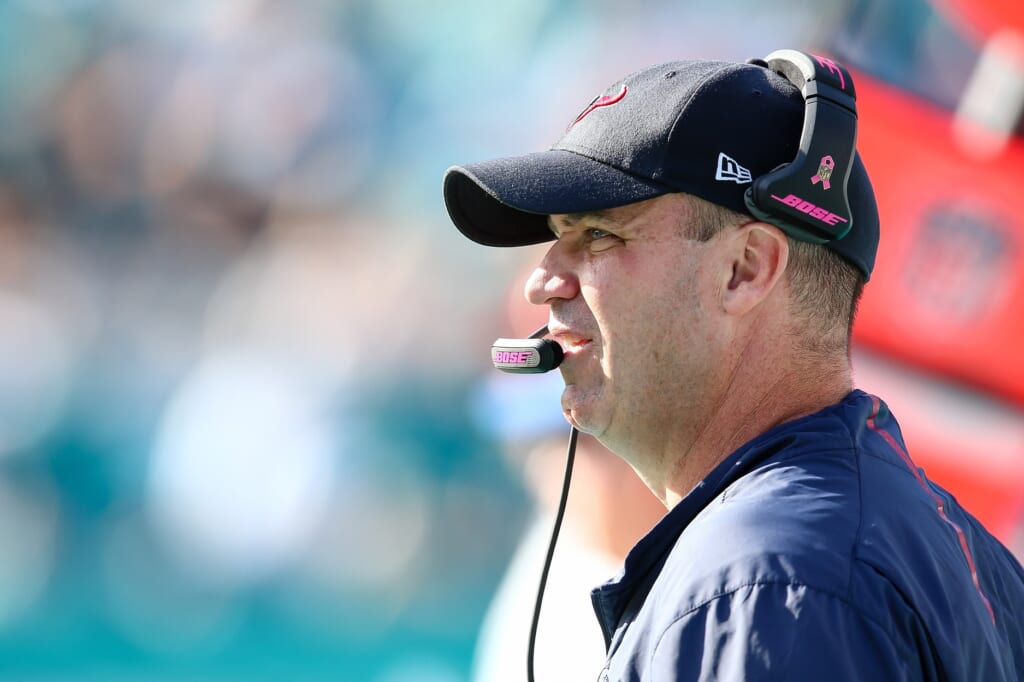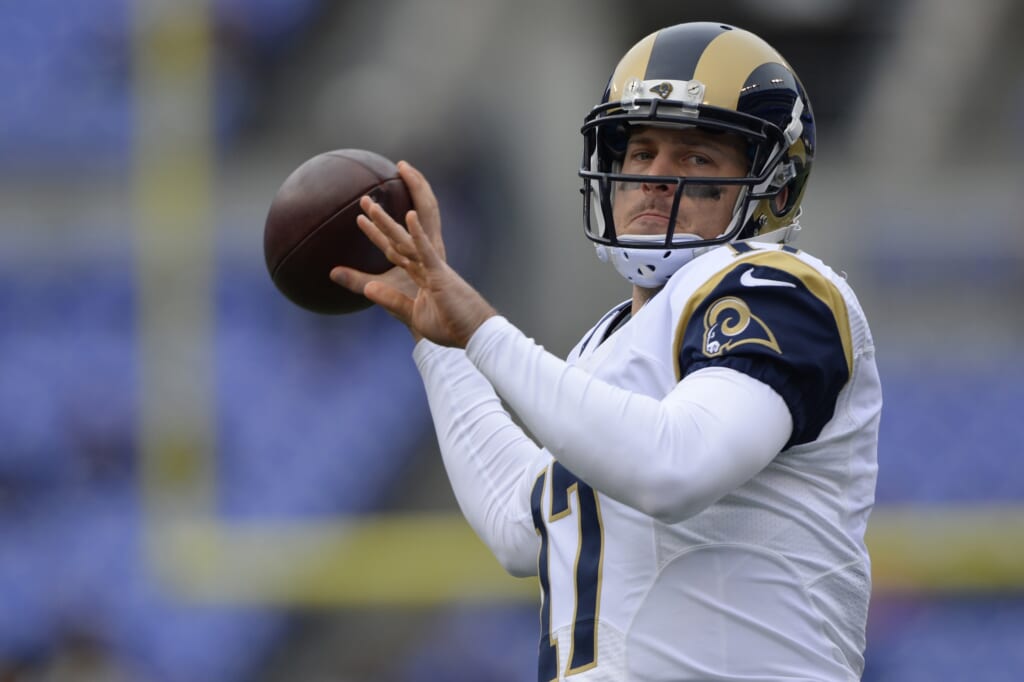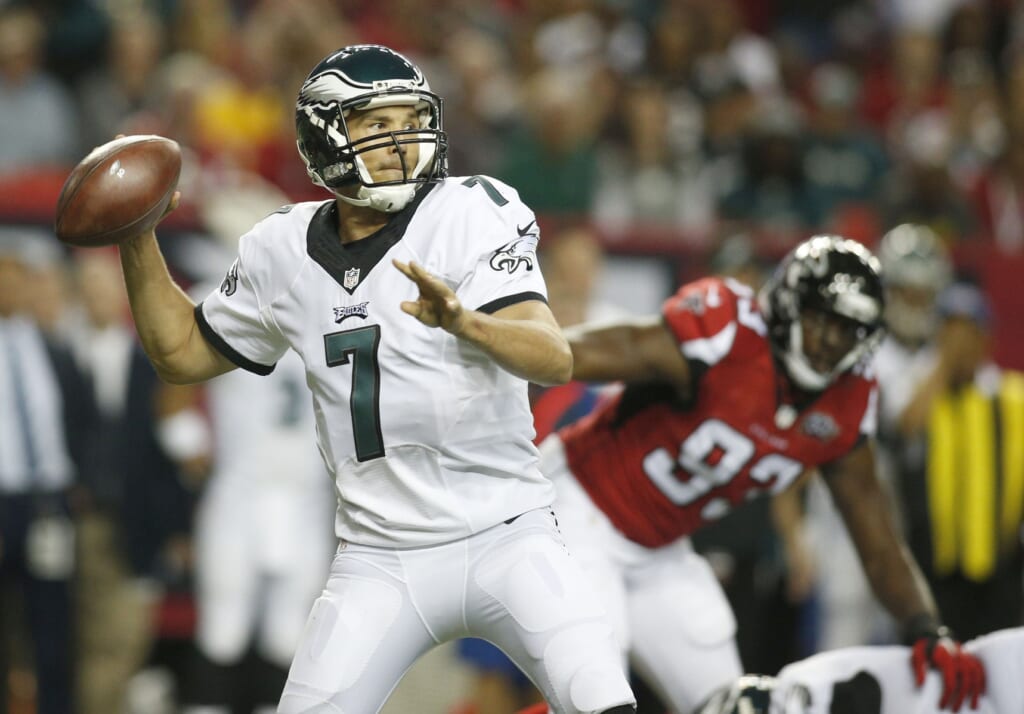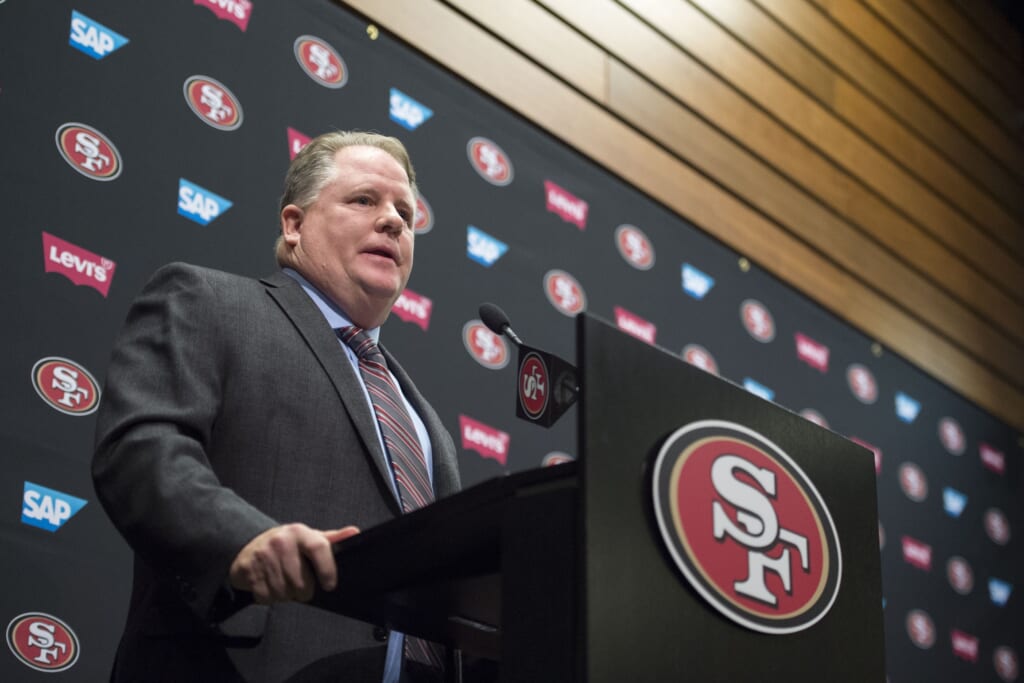
It’s simply a yearly ritual deciding which teams besides the Cleveland Browns need a quarterback. Six franchises will join Cleveland in that chase during the 2016 NFL draft.
Top prospects include potential top-15 picks in Jared Goff (California), Carson Wentz (North Dakota State) and Paxton Lynch (Memphis), while Connor Cook (Michigan State) and Christian Hackenberg (Penn State) lead the rest of a fascinating class.
Behind those five — and plenty will argue Hackenberg should be in a lower category — NFL teams targeting the position certainly won’t find an immediate No. 1 man. However, that makes the remaining quarterbacks prime developmental options behind established starters.
Cleveland Browns
Josh McCown is still under contract, so Cleveland doesn’t need a rookie to take over under center. The fan base might not be happy about that, and it’s an understandable reaction given the poor history.
Nevertheless, the Browns have the No. 2 overall pick and don’t have a franchise quarterback, especially now that Johnny Manziel’s time with the team is likely approaching the end.
Buzz is growing around Wentz as Cleveland’s top selection. Goff and Lynch would also both be logical selections for new head coach Hue Jackson, who helped develop Joe Flacco as a young gunslinger for the Baltimore Ravens and won’t rush a rookie into the game.
The Browns might target the position later on, but a majority of reports point toward the club taking a quarterback with the No. 2 pick.
Dallas Cowboys
Tony Romo isn’t going to last forever. A pair of collarbone breaks last year as well as back trouble in 2014 confirmed as much. Assuming the veteran stays at least remotely healthy next season, Dallas probably won’t have anything near the fourth overall selection next May.
However, that leaves the organization in a precarious spot. Should the Cowboys focus on helping Romo win now? Or is the better course of action to snatch a top prospect to learn behind Romo and build for the future?
After all, Dallas was a complete disaster once Romo missed games. Matt Cassel and Kellen Moore were hardly suitable replacements, so the Cowboys should strongly consider drafting their post-Romo signal-caller. Granted, Robert Griffin III is a trendy rumored signing.
If Jerry Jones and Co. pass on Wentz, Goff and/or Lynch, though, Cook is a terrific option should he slide into Round 2. Brandon Allen (Arkansas) would make plenty of sense for Dallas as a third- or fourth-round choice if the team elects to focus on immediate-impact pieces earlier in the draft.
Denver Broncos
Presumably, Hall of Fame-bound quarterback Peyton Manning is poised to start that five-year waiting period until his bust reaches Canton. Denver better hope Brock Osweiler doesn’t leave, too.
Osweiler, who posted a 5-2 record as a starter in 2015, is an unrestricted free agent. He wasn’t particularly impressive throughout his eight appearances, though he was an upgrade over Manning — which is still weird to say.
Perhaps another team on this list will present Osweiler a jaw-dropping offer and steal him from the Broncos. For the sake of worst-case scenarios, let’s say that happens after Manning retires. Is Denver prepared to hand Trevor Siemian the reins? Probably not.
Cook is an ideal schematic fit but may not be available. Allen matches the system, as do Jake Coker (Alabama) and Kevin Hogan (Stanford). The latter two aren’t highly regarded, partly due to limited playing time in college and an elongated throwing motion, respectively.
No matter the outcome of Osweiler’s situation, the Broncos should add depth.
Houston Texans
Andrew Luck’s injuries allowed Houston to stumble into the 2015 playoffs despite Brian Hoyer being the quarterback. If you’d like to argue that opinion, I will simply point to a 30-0 shutout during the Wild Card Round and bid you a good day, fellow sports fan.
For months, reuniting Hackenberg and former Penn State coach Bill O’Brien seemed like a perfect idea. Unfortunately, the new staff in State College destroyed Hack, misusing their first-round-caliber quarterback and shattering his confidence behind an abysmal offensive line.
Texans supporters may suggest Tom Savage is a potential option. He spent the 2015 season on injured reserve. Savage has thrown 19 passes in the NFL, though, so he’s as developmental a prospect as anyone else available.
Houston holds the No. 22 selection, but Goff, Wentz and Lynch are unlikely to fall that far. Snatching Cook is reasonable, but adding a receiver like Laquon Treadwell seems like a smarter decision. The Texans could wait for their second-round pick, where Hackenberg will probably be on the board.
In that case, O’Brien must be ready to embark on a reclamation project for Hack — someone O’Brien initially made a star prospect. Otherwise, Houston could hold out for a rocket arm in Cardale Jones (Ohio State), Jacoby Brissett (North Carolina State) or Brandon Doughty (Western Kentucky) and look elsewhere for the 2016 starter.
Los Angeles Rams
New home, new quarterback? Well, Rams fans probably aren’t overly excited about Nick Foles or Case Keenum being the starter.
Los Angeles has a glaring depth issue at wide receiver, so it wouldn’t be a shock if the franchise focuses on pass-catchers first. Throwing to Kenny Britt, Tavon Austin and a collection of “meh” won’t help a rookie progress quickly.
But if Goff, Wentz or Lynch falls to No. 15, the Rams shouldn’t hesitate. Pick him. Pick him now. They haven’t had a legitimate franchise quarterback since Kurt Warner. Marc Bulger put together two strong seasons and then… not so much. After Bulger, Sam Bradford couldn’t stay healthy.
Cook lasting until 43rd overall would be a dream scenario for Los Angeles, which might prefer to snag a wideout like Treadwell, Josh Doctson or Ohio State’s Michael Thomas in the first round.
Philadelphia Eagles
Trailing only the obvious choice in Dallas, the Eagles have the best potential returning starter of teams mentioned in this list. Yes, Bradford wasn’t a superstar. Despite not fitting Chip Kelly’s system, though, the injury-prone quarterback finished the year 7-7 as a starter.
Bradford is an unrestricted free agent, so he’ll continue negotiating a new contract with the franchise. Per CSN Philly, tight end Zach Ertz even said Bradford wants to return next season.
Yet the Eagles are caught in a dilemma similar to Denver’s. Like Osweiler, Bradford may re-sign. If he doesn’t, Mark Sanchez is the probable starter unless Philadelphia brings back Foles.
Bradford’s pro-style strength fits the philosophy of Doug Pederson, though the new head coach may prefer some mobility a la Alex Smith. Lynch and Wentz can provide that dynamic at No. 13 overall, while Jones, Brissett and Jeff Driskel (Louisiana Tech) should be available on Day 3 while Bradford essentially serves as a stop-gap.
San Francisco 49ers
One of the biggest storylines of the offseason will be Colin Kaepernick’s home for 2016. He possesses the perfect skill set for Kelly’s offense. However, Kap will count more than $16 million against the cap if he hasn’t passed a physical or the 49ers haven’t moved the dual-threat quarterback by April 1.
Either way, San Francisco is actually in a decent spot. The Eagles won 10 games under Kelly in 2013 and 2014 then only lost the NFC East by two games last year despite never having a truly zone-read-capable player under center.
Goff isn’t a runner, but he’s a hometown boy who could thrive in Kelly’s numbers-based offense. Wentz and Lynch, on the other hand, are mobile. Each quarterback is worth that seventh pick and would provide strong competition for Kap and/or Blaine Gabbert.
One late-round option — Dak Prescott (Mississippi State) — is particularly intriguing. He accounted for 114 total touchdowns while only throwing 23 interceptions throughout his college career. Prescott ran for 2,403 yards during his final three seasons.
The 49ers really can’t make a bad selection at No. 7, and Prescott is a solid fourth-round flier now that Kelly is in town. Adjusting to Kelly’s system will be critical for the success of San Francisco’s new gunslinger.
